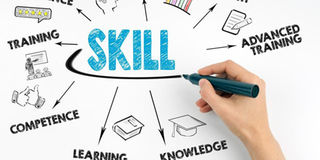Three dumb questions about skills

What you need to know:
- One of the most significant changes we have seen during this time is the acceleration of skills. The frenzy over “skills” (reskilling, upskilling, unskilling, skilling 2.0, etc.) has recently ratcheted from a philosophical discussion to a verifiable necessity. Organisations have begun to realise the benefits of quantifying work at a much more granular level.
There is no question that the pandemic accelerated new ways of working. Organisations needed more flexibility and fluidity as employees went remote and shuffled companies. This caused many employers to throw out the proverbial rule book and begin thinking differently about how work gets done.
One of the most significant changes we have seen during this time is the acceleration of skills. The frenzy over “skills” (reskilling, upskilling, unskilling, skilling 2.0, etc.) has recently ratcheted from a philosophical discussion to a verifiable necessity. Organisations have begun to realise the benefits of quantifying work at a much more granular level.
While the opportunities of skills are real, many organisations struggle to get started. We think part of the problem may be that they are having the wrong conversations. Following, we highlight three questions we are hearing about skills and three we think organisations should ask themselves instead.
What should we call skills?
Are skills the same as competencies? Are competencies the same as traits? Where do capabilities come in? Interestingly, in our conversations with 25 leaders who have started to implement a focus on skills in their organisations, every one of them said they do not care what they are called. These leaders tended to be much more interested in what they are: The ability to do a kind of work.
We think this conversation, which we have seen get pretty heated, detracts from bigger, more important questions.
What can we do with skills?
With a good skills strategy and decent skills data, possibilities open up to make organisations nimbler and more responsive. For example, organisations can:
• More accurately determine the skills needed for specific roles and gauge how qualified individuals are to fill those roles.
• Identify transferrable skills across roles and organisations, making mobility easier and potentially solving talent shortages.
• Determine which skills could be combined to create new roles that serve the strategy better or eliminate old roles that are no longer necessary.
• Identify employees with skills needed in other parts of the organisation, enabling more mobility or gig work.
New possibilities open up when leaders ask themselves what they can do with skills instead of what to call them.
Which skills will be in the highest demand in 2025 globally?
Many articles offer insights into which skills will be the most prominent in 2025, 2030 or 2050. While these articles are excellent clickbait, speculations like these do not serve organisations well. It is absurd to assume that all workers and all organisations will need the same skills.
Figuring out the skills your organisation should focus on is a do-it-yourself job. The skills your organisation needs will vary by industry, business strategy, people strategy, changes to the external environment and so many other factors. They cannot all be found on one generic list.
As such, you and other leaders in your organisation are best equipped to understand which skills you need and should focus on. Leaders we spoke to recommend forming a task force whose job is to answer questions such as: “Do we limit our effort to just the top skills we think all employees need?” “What skills do we need to deliver the business strategy?” and “Do we want to start small, like with one function, or should we go big?”
Do not be afraid to start the conversation. We promise others in your organization want to have it. Begin talking specifically about the skills your organisation needs.
hrexecutive.com




